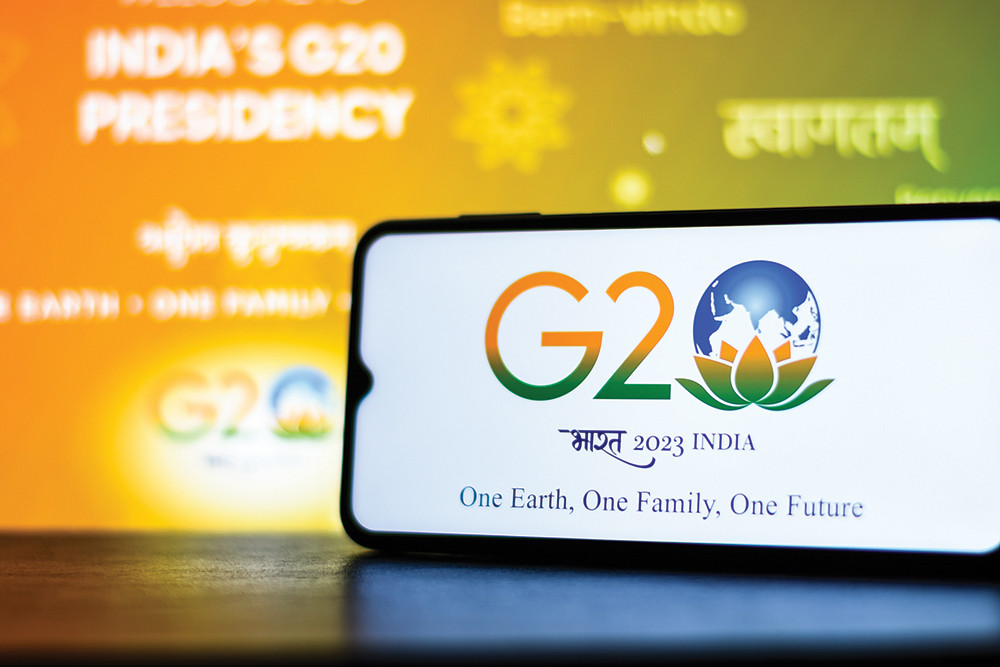
Can the electorate disassociate itself from its karma?
Today, we are partners in pain. Corona virus has done what humans could not. It has brought the world together. We are far more sensitive of each other’s travails and needs, more than ever before. The same pandemic has afflicted all of us without distinction of religion, caste, creed or nationality. Suffering from the same malady we are realising and understanding the global trauma better.
There is little point in discussing the Corona statistics. It is too dynamic, throwing new data by the minute. The news media is busy chronicling and dispersing it.
God bless, Nepal and its immediate neighbours have so far been spared of Corona’s full blast. Yet it is painful to be watching its gory dance of death in distant lands.
What after Corona is the question figuring uppermost in the mind of the business world. Much has been said about it. The media is overflowing with analyses, estimations and speculations.
There is some consensus on a few inferences. It is expected that countries will upgrade public health policies via higher budgetary and fiscal allocations and well thought systemic reforms. The world will become more digitalised. E-commerce, online education and telemedicine will gain ground rapidly. Universal health care and universal basic income may become a reality. The media too could move towards more online platforms. This might hasten the decline of the print media.
Greater digitisation will also usher in much needed transparency in government affairs. The people will be better placed to assess and support or oppose political parties. Democracy will become stronger. E-filing of petitions will make the judiciary more accessible and affordable for the common man.
Our history of pandemics has witnessed the world better fortified to tackle with future calamities. Short-term tactics and long-term strategies emerged to make us safer and secure. In many a case, prosperity reigned for long once the pandemics subsided. The common people and business should, therefore, rest assured that better times will follow.
However, there is an apprehension among the ‘intelligentsia’ that the post-Corona world will lead to the emergence of a stronger State. Many of these ultra- liberal minds always find this reprehensible. They look upon all government intervention with doubt and scepticism.
Is the State necessarily evil? Is it always inimical to the interests of the people, including business folk?
Let us first go through the most accepted definition of the State. It comes from Max Weber who described it as a human community that successfully claims the monopoly of the legitimate use of a physical force within a given territory. Terms like ‘monopoly’ and ‘physical force’ can indeed cause unease in intelligent minds. This demands a deep dive into the concept of the State.
Barring single-party regimes like China and Cuba, and dictatorships in some countries, most nations have espoused one or the other form of democracy. People vote political parties or individuals to power exercising their voting franchise. So we get the government we elect or, let us say, the government we deserve.
Can the electorate disassociate itself from its karma?
But we find the voters often crying and screaming about the State they have themselves created. Is this morally right? Maybe ‘Yes’, if the government has totally betrayed the people, gone back on its promises or has created an entirely new and ulterior agenda.
We have seen popularly elected governments straying from their election manifestoes. There have also been dispensations who have horribly failed because of sheer incompetence and inefficiency. A few governments failed falling prey to outright greed and corruption. Yet many of the foul political conglomerations have bounced back to power more than once. Almost all of them have managed to maintain a solid electoral base. Who is responsible for that? Sad it may sound, but it is the gullible voters. The voters need to assert for a right to recall elected representatives who betray their promises.
Moving to another vital point, I would like to ask: is the State necessarily evil, as the eggheads would have us believe? I feel that the State or, shall I say, governments may flop and flounder but their intentions are not always mala fide.
The current Corona crisis has bought to the fore another reality. When it comes to public welfare no entity can match the State. Can any other body even remotely match the stimulus package or relief which the State can extend? Nepal has seen it.
Japan and the USA could not come up to people’s expectations despite providing stimulus worth 20% and 15% of their GDP, respectively. Yet, there is vigorous demand for return to economic activity despite the threat of new surge in Corona infections. Americans are agitating for return to normal life and they are calling the lockdown an attack on their fundamental rights.
The State is one again caught between a rock and a hard place. But vilified and harangued it will be by compulsive critics who never bother to offer practical solutions.
So in all likelihood, the State will emerge stronger in once the pandemic loses its potency. This is all the more imminent in Nepal and its neighbourhood. Good or bad in serving the Corona victims, the State has emerged as the most powerful saviour in view of the resources at its disposal.
The thinking class and business have always viewed less governance as the best governance. They fear that the government will, henceforth, be more prone to interventions in the business of our life. We cannot wish away the State. It is our own creation. But the people can certainly intervene wisely to prevent the State from going astray.
Basant Chaudhary is a Poet, Writer, The Chairman of BLC and Basant Chaudhary Foundation. ([email protected])




